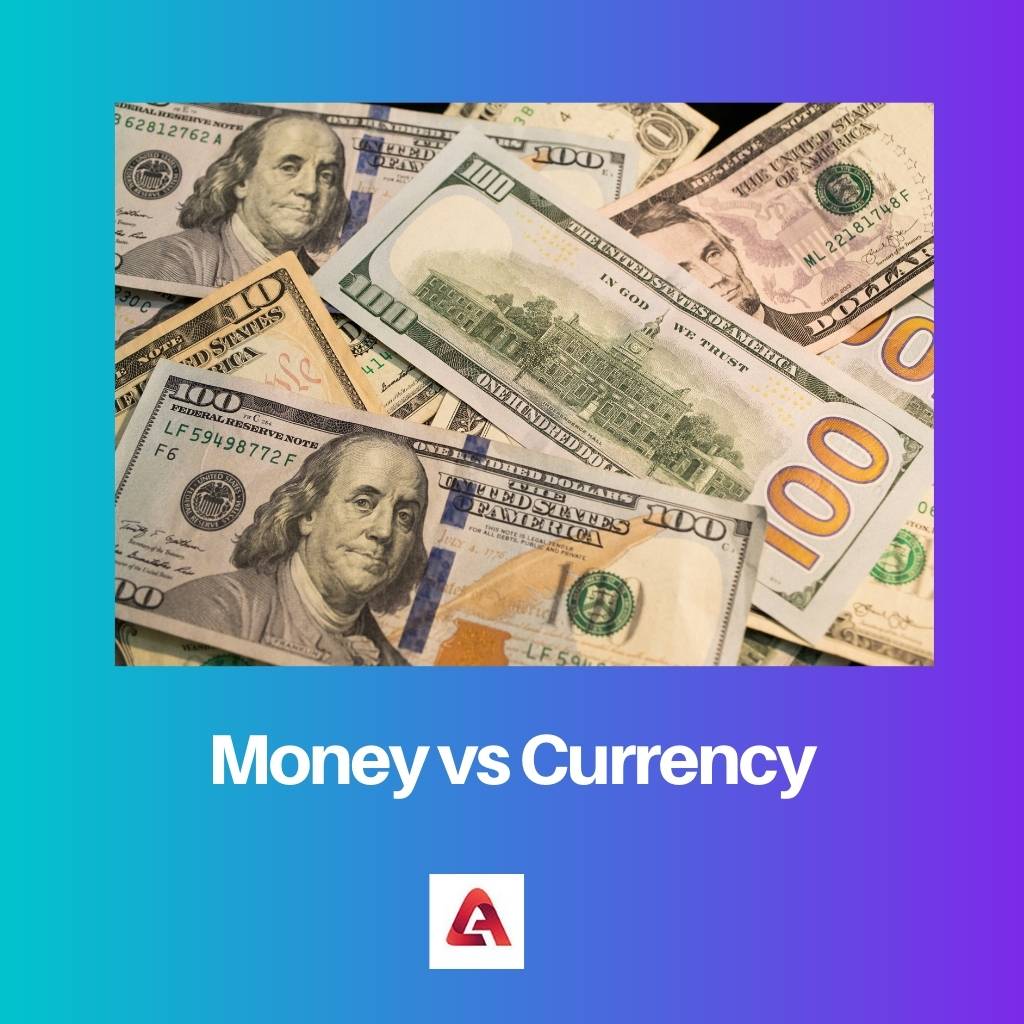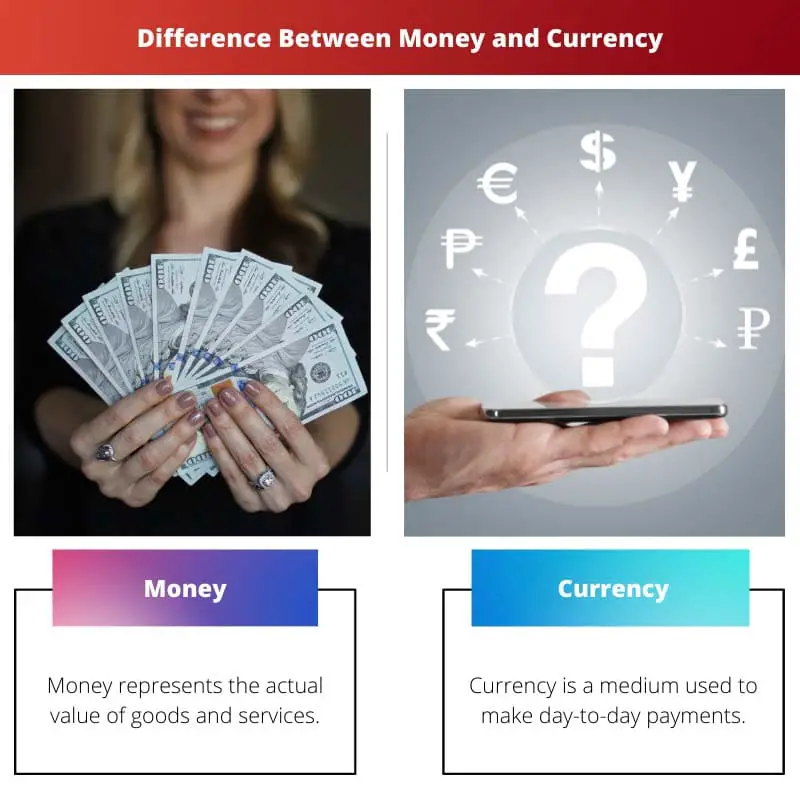Money and currency are closely connected. They almost seem to be the same. These two terms are used by people in everyday life.
Key Takeaways
- Money is a broader concept encompassing any medium of exchange, store of value, and unit of account.
- Currency refers to physical tokens or notes, like coins and bills, representing a specific country’s money.
- Currency values fluctuate due to economic conditions, political stability, and market demand.
Money vs Currency
Money is a general term for any form of payment or exchange of value, which is anything that can be used to purchase something. Currency is a type of money that is issued and backed by a government, and it is a standardized medium of exchange that is widely recognized and accepted as a means of payment.

Money serves as a medium of exchange. It enables its holders to buy and sell goods and services all around the world.
Currency is a form of money, such as the rupee, euro, or dollar, accepted as a mode of payment. It is money in circulation or money traded publicly.
Comparison Table
| Parameters of Comparison | Money | Currency |
|---|---|---|
| Uses | Money represents the actual value of goods and services. | Currency is a medium used to make day-to-day payments. |
| Store of value | It serves as a store of value. | It is just used to make transactions. |
| Tangibility | It is intangible, i.e., it cannot be seen or touched. | It is tangible i.e., it can be seen as well as touched like paper notes and coins. |
| Functions | It performs mainly four functions: medium of exchange, store of value, measure of value, and standard of deferred payments. | It performs the function of financing day-to-day transactions. |
| Examples | Some of its examples are money in the bank(saving account, fixed deposit account), plastic money like credit cards, etc. | Its examples are paper notes(soft money) and metal coins(soft money). |
What is Money?
Money, also called Legal tender money, serves as a medium of exchange of goods and services in the economy. It serves as a means of payment.
- Medium of exchange: Money serves as a medium of exchange. Medium of exchange means that a buyer can purchase the goods and services, and the seller can sell the prospective goods and services.
- Store of value: Money has purchasing power which essentially means that it can cater to future needs. It is used as a store of value or wealth.
- The measure of value: The introduction of money solved the problem of the barter system, where it was difficult to calculate the value of a good based on other goods.
- Standard of deferred payments: Money can be used for making future payments. This function of money led to the foundation of financial institutions.
Money is the basis of survival, freedom, and financial security.

What is Currency?
Currency is used to describe ‘money in circulation. It refers to money held by people in the form of soft money like paper notes and hard money like coins.
Currency has been in circulation for more than a thousand years. It facilitates trade across different countries. US Dollars are regarded as the most widely accepted currency in the world.
Foreign Exchange(FOREX) provides a platform to facilitate the exchange of national currencies. It creates a system of buyers and sellers who wish to trade the currencies and earn profit.
Recently a new kind of currency has been introduced in the economy called virtual currency. The virtual currency has no physical existence or government backing.

Main Differences Between Money and Currency
- Money cannot lose its buying power. On the other hand, currency may lose its power due to some RBI or government regulations.
- Money functions as a store of wealth, whereas currency is used to finance transactions without making the addition of one’s wealth.
